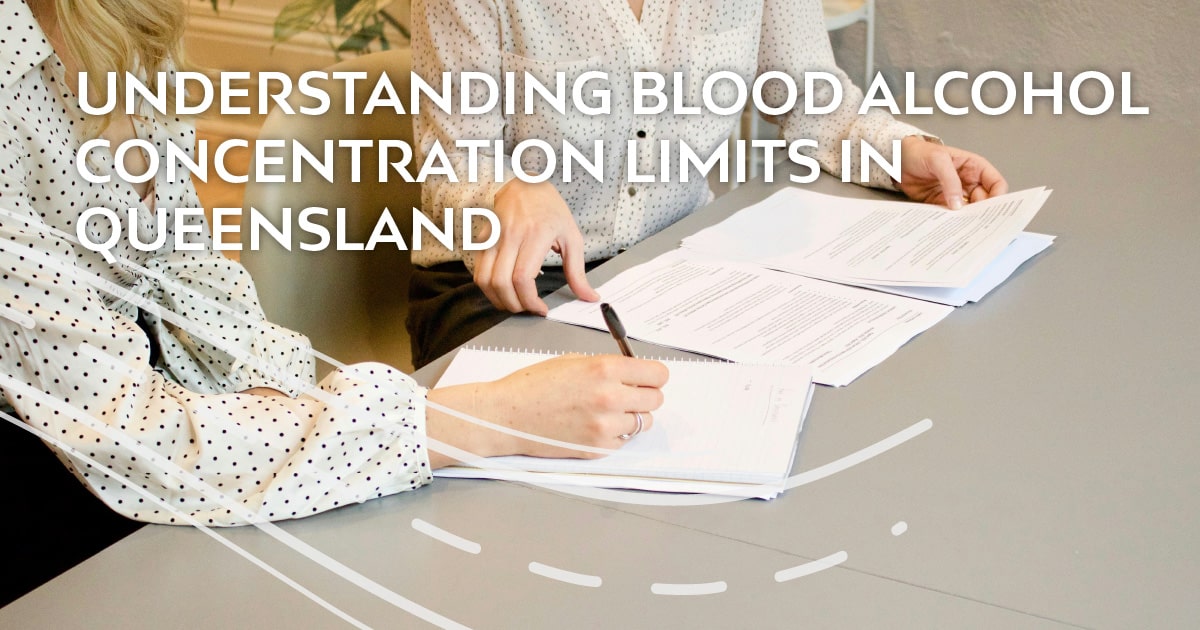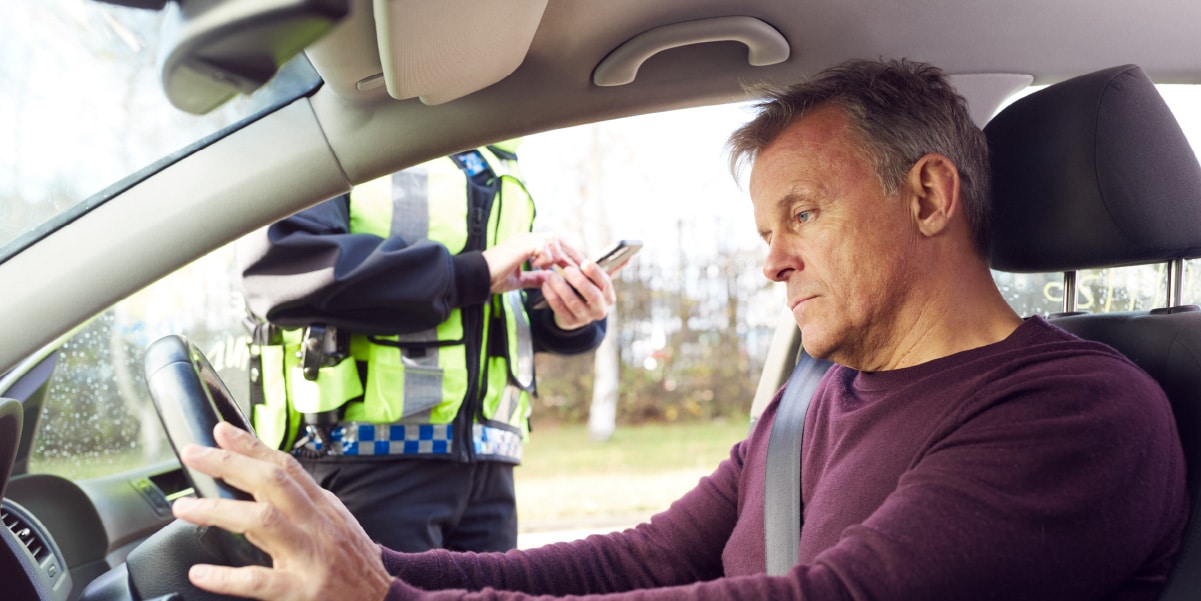
Understanding Blood Alcohol Concentration Limits In Queensland
In Queensland, the rules and regulations surrounding Blood Alcohol Concentration (BAC) limits are strict and well-defined to ensure road safety. Blood Alcohol Concentration is a measure that quantifies the amount of alcohol in a person's bloodstream, typically expressed as the weight of alcohol in grams per 100 millilitres of blood. In Queensland, the legal alcohol limit is set at 0.05, meaning that having more than 0.05 grams of alcohol per 100 millilitres of blood while driving is considered illegal and can result in serious consequences both from the law, but also in regard to endangering oneself or others on the road. By sticking to the QLD alcohol limit, we can contribute to safer roads and a responsible drinking culture.
Effects of Alcohol on Driving
Even consuming small amounts of alcohol can significantly impair a driver’s ability to safely operate a vehicle. Alcohol has a profound impact on the driver’s judgement, coordination, and reaction times, leading to an increased risk of accidents. The effects of alcohol on the central nervous system can cause decreased cognitive function, delayed decision-making, compromised motor skills, and reduced visual acuity. These impairments can make it challenging for drivers to perceive and respond to potential hazards on the road, putting themselves and others at risk. It is crucial to remember that any amount of alcohol can have a detrimental effect on driving performance, and it is always best to choose not to drink if you plan on driving.
What Is the Legal Blood Alcohol Limit?
In Queensland, legal blood alcohol limit varies depending on the type of licence held. For individuals with open licences, which include full driver’s licences, the allowable BAC limit is set at 0.05. However, for learner drivers, provisional and probationary licence holders, as well as drivers operating specific motor vehicles such as taxis and buses, there is a a zero-tolerance BAC limit. This means that any trace of alcohol in their system is considered a violation, and they could be charged. These measures are in place to prioritise the safety of all road users and to further mitigate the risks associated with alcohol consumption while driving. By setting different BAC limits based on licence type, Queensland aims to ensure that drivers understand the importance of responsible alcohol consumption and the potential consequences of driving under the influence.

How Does the Body Process Alcohol?
The rate at which alcohol is processed varies depending on a multitude of factors. These include the individual’s body size, gender, overall liver health, the presence of food in the stomach at the time of consumption, as well as genetic factors and even the type of alcoholic beverage consumed. Each of these elements plays a role in the complex and intricate process of alcohol metabolism. For example, individuals with larger body sizes tend to metabolise alcohol at a slower rate compared to those with smaller body sizes. Similarly, women generally have lower alcohol dehydrogenase activity in their stomach than men, leading to a slower alcohol breakdown (meaning they get drunk faster as their body doesn’t break down the alcohol as quickly). Furthermore, the presence of food in the stomach slows down the absorption of alcohol into the bloodstream, resulting in a slower absorption of the alcohol. All of these factors interact and contribute to the overall complexity of alcohol metabolism, highlighting the importance of considering these details when discussing the effects of alcohol on the body.
Legal Consequences
Breaching BAC (Blood Alcohol Concentration) limits in Queensland can have serious consequences. Offenders may face significant fines, loss of demerit points on their driving record, suspension or cancellation of their driver’s licence, and in severe cases, even imprisonment. This not only impacts the individual but also poses a risk to the safety of other road users.
Driving under the influence of alcohol impairs judgement, reaction time, and coordination, increasing the likelihood of accidents. It is crucial to always be aware of and adhere to the legal BAC limits to ensure the safety of yourself and others on the road. By being responsible and making informed choices, we can contribute to creating a safer driving environment for everyone.
How to Stay Safe
The best and most responsible way to ensure you are well within the legal Blood Alcohol Concentration (BAC) limits is to completely avoid consuming alcohol if you plan to drive. By abstaining from alcohol, you eliminate any risk of impairment and ensure the safety of yourself and others on the roads.
However, if you do find yourself in a situation where you have consumed alcohol, it is crucial to have a designated driver or make use of public transportation. Having a trusted individual who is sober and capable of driving can greatly reduce the risks associated with impaired driving.

What Should You Do If You Are Charged
If you find yourself facing a drink driving charge in Queensland, it’s important to act promptly and responsibly. Firstly, seek legal advice. Qualified legal professionals can help you understand the complexity of your situation and guide you through the legal proceedings. Remember to fully cooperate with the police and comply with all their instructions. Do not admit any guilt or make any statements without your lawyer present. Make sure to document all details of the incident and gather any relevant evidence. Lastly, adhere to any restrictions imposed on your driving and attend all court appearances as required. It’s crucial to take this matter seriously as a driving under the influence conviction carries significant penalties, which can impact your personal and professional life.
To Finish Off
Understanding blood alcohol concentration (BAC) limits and the effects of alcohol on driving ability is crucial for ensuring road safety. It is of utmost importance to be well-informed about the legal limits in your specific region and to consistently stay well within these limits. By doing so, you not only protect yourself but also contribute to preventing any unnecessary harm caused by impaired driving.
In this article, our goal is to provide a comprehensive understanding of the BAC limits in Queensland, Australia. However, it is essential to note that laws and regulations can change over time. Therefore, it is highly advisable to regularly check the most recent information from the official Queensland Government website or consult with the local police department to stay updated on any changes.
Always prioritise staying informed and driving safely to ensure the well-being of yourself and others on the road. Remember, responsible decision-making plays a vital role in maintaining a safe and secure environment for everyone. Contact your local drink driver lawyer today if you have been charged so we can help you in the best way we can.
